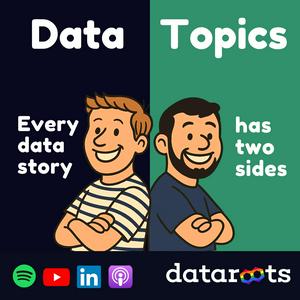Send a text
Trust collapses fast when a dashboard misleads or an AI agent learns from messy data. We dig into how data quality became business critical—and how to move from reactive fire drills to proactive systems—through real stories from clinical trials and large platforms where a single broken test could escalate to the C‑suite. With Stan and David, we map the shifts driving this moment: AI adoption, rising reliance on metrics, and the urgent need for shared definitions, lineage, and monitoring that let teams find root causes before customers feel the impact.
We get practical about agents that actually help. Instead of vague hype, we break down a low‑risk architecture for read‑only, metadata‑aware agents that handle repetitive, high‑leverage tasks: writing dbt documentation, proposing data tests, performing lineage‑driven root cause analysis, and auto‑drafting tickets with queries, diffs, and impact notes. We explain why integrated agents beat copy‑paste prompts, how to add guardrails that limit scope and permissions, and what human‑in‑the‑loop review should look like to build real trust without slowing the work.
Expect candid guidance on adoption and observability: two layers of visibility—agent behavior and data quality posture—help teams track costs, measure time to resolution, spot repeating incidents, and choose structural fixes. We also explore buy vs build as platforms begin embedding agent capabilities, and we share a clear starting path for any team: prioritize critical datasets, standardize KPIs and definitions, enable tests, and surface lineage so automation has the context it needs. By the end, you’ll have a blueprint to reduce firefighting, improve stakeholder confidence, and make your AI agents smarter by feeding them cleaner, governed data. If this resonates, follow the show, share with your data team, and leave a review with the one task you’d automate first.


